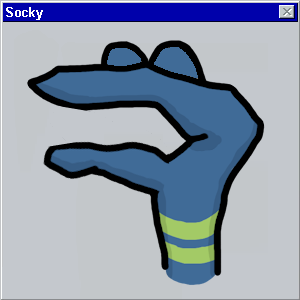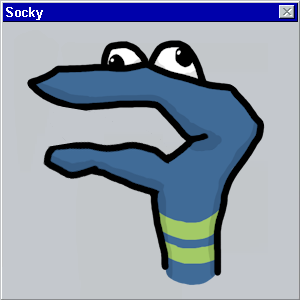Do you know a website for war history?
May 18, 2004 2:54 PM Subscribe
Can anyone point me in the direction of an internet site or book that describes history's wars in an objective, detailed, yet concise way? [more inside]
It's amazing how many sources I've looked at tell, for instance, the story of World War II starting on December 7, 1941. I'm sure stuff was happening before Pearl Harbor. I'm looking for something more objective and with more details (Japanese Internment camps are often left out too, what's up with that?). But I'd like it to be like 30 pages and not too dry either. Am I asking for too much? (My examples were from WWII, but I'm looking for everything: Boer War, Crimean War, Persian Gulf, all of it).
It's amazing how many sources I've looked at tell, for instance, the story of World War II starting on December 7, 1941. I'm sure stuff was happening before Pearl Harbor. I'm looking for something more objective and with more details (Japanese Internment camps are often left out too, what's up with that?). But I'd like it to be like 30 pages and not too dry either. Am I asking for too much? (My examples were from WWII, but I'm looking for everything: Boer War, Crimean War, Persian Gulf, all of it).
As someone who recently did a report on the Boer war, good luck. Someone would make a killing writing "The History of War" or something similar.
Wikipedia was my beginning, means and end. I second it.
posted by geoff. at 3:02 PM on May 18, 2004
Wikipedia was my beginning, means and end. I second it.
posted by geoff. at 3:02 PM on May 18, 2004
This book looks like it might be good background reading.
posted by languagehat at 4:03 PM on May 18, 2004
posted by languagehat at 4:03 PM on May 18, 2004
haha "objective" "history"
This is more focussed on individual battles, but might be a solid, albeit quite biased look at older wars.
posted by mookieproof at 4:42 PM on May 18, 2004
This is more focussed on individual battles, but might be a solid, albeit quite biased look at older wars.
posted by mookieproof at 4:42 PM on May 18, 2004
John Keegan's The Face of Battle is one I would consider a Must Read. It takes a soldier-eye's view of battle, and deconstructs some of the great victories from trenches on up. It gives gripping, statling, and formerly untold accounts of how the individual soldier experienced war. A truly revolutionary re-telling of war not as a clash between 'Great Men' but between ordinary footsoldiers under extraordinary circumstances. Keegan covers Agincourt in 1415, Waterloo in 1815, and the Somme in 1916.
posted by ChasFile at 7:09 PM on May 18, 2004
posted by ChasFile at 7:09 PM on May 18, 2004
Slimemonster: IANAMH (I am not a military historian), but I am a history graduate student, and I think I understand some of the trouble you are running into.
Strictly speaking, it isn't inaccurate to say that WWII began in 1941, if you are writing US history. People object that history "isn't objective" - but if objective means writing everything, well, that is impossible. History always has a focus - US describes the parts of the war the US was involved in, European history (even if written in the US by an American) will describe the war as starting in 1939, but will focus on the European theatre to the detriment of the other theatres. Chinese history of this same period is a confusion of many wars - starting with the breakdown after the Revolution of 1911, the warlord period, the Japanese Invasion in 1930 or 1933, which ends with their surrender in 1946, and then a civil war until 1949. WWII is only a small part of this long, bloody period.
If you are looking for dates and facts, then you might be interested in a timeline books like this.
But if you really want to find information that is well researched and presents good analysis, it probably isn't going to be very concise (it takes space to explain the complex forces of history). I would recommend college level textbooks - they aren't as driven by curriculum as highschool textbooks are, and the better ones present the information in an informative, but easy to read manner. John Merriman's A History of Modern Europe is usually highly recommended; I also found Jonathan Spence's The Search for Modern China is also very good. Neither of these are focused primarily on war, but discuss the wars of their regions along with other events; both are also known among college students for being good, undry reads. The most concise (and still understandable) book I've ever come across on the French Revolution and its associated wars is by Popkin.
If you are interested in understanding the causes and developments and effects of wars (who fought whom when, why and then what) - then general histories of the region in question (Europe, China, South Africa) are probably the best bet. If you are interested in military strategy, culture and experiences, then books on wars and warfare of the period you are interested in would be more interesting.
Sorry I can't be of more specific help - but I do know a military historian - if you email me, I can forward your questions on to him as he would more likely have specific recommendations for books (especially naval history).
posted by jb at 9:20 PM on May 18, 2004
Strictly speaking, it isn't inaccurate to say that WWII began in 1941, if you are writing US history. People object that history "isn't objective" - but if objective means writing everything, well, that is impossible. History always has a focus - US describes the parts of the war the US was involved in, European history (even if written in the US by an American) will describe the war as starting in 1939, but will focus on the European theatre to the detriment of the other theatres. Chinese history of this same period is a confusion of many wars - starting with the breakdown after the Revolution of 1911, the warlord period, the Japanese Invasion in 1930 or 1933, which ends with their surrender in 1946, and then a civil war until 1949. WWII is only a small part of this long, bloody period.
If you are looking for dates and facts, then you might be interested in a timeline books like this.
But if you really want to find information that is well researched and presents good analysis, it probably isn't going to be very concise (it takes space to explain the complex forces of history). I would recommend college level textbooks - they aren't as driven by curriculum as highschool textbooks are, and the better ones present the information in an informative, but easy to read manner. John Merriman's A History of Modern Europe is usually highly recommended; I also found Jonathan Spence's The Search for Modern China is also very good. Neither of these are focused primarily on war, but discuss the wars of their regions along with other events; both are also known among college students for being good, undry reads. The most concise (and still understandable) book I've ever come across on the French Revolution and its associated wars is by Popkin.
If you are interested in understanding the causes and developments and effects of wars (who fought whom when, why and then what) - then general histories of the region in question (Europe, China, South Africa) are probably the best bet. If you are interested in military strategy, culture and experiences, then books on wars and warfare of the period you are interested in would be more interesting.
Sorry I can't be of more specific help - but I do know a military historian - if you email me, I can forward your questions on to him as he would more likely have specific recommendations for books (especially naval history).
posted by jb at 9:20 PM on May 18, 2004
I'd heartily recommend The World Atlas of Revolutions, by Andrew Wheatcroft, as a partial solution.
posted by troutfishing at 10:54 PM on May 18, 2004
posted by troutfishing at 10:54 PM on May 18, 2004
Response by poster: Wow guys, thanks for all that. This is perfect, especially the wikipedia thing. How did I exist for so long without knowing about that?
posted by Slimemonster at 9:14 AM on May 19, 2004
posted by Slimemonster at 9:14 AM on May 19, 2004
This thread is closed to new comments.


posted by falconred at 3:00 PM on May 18, 2004